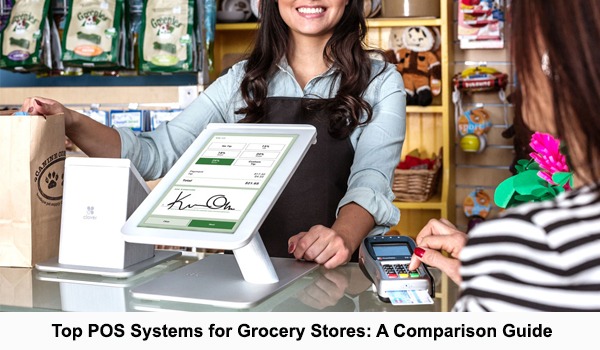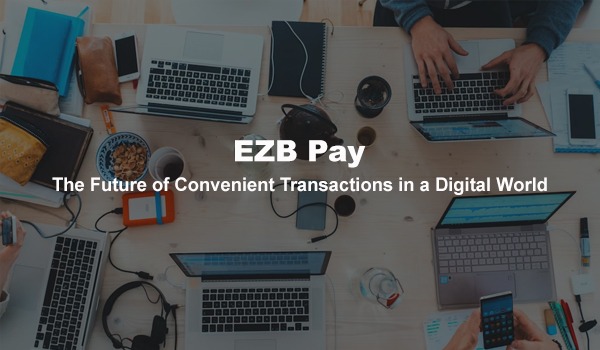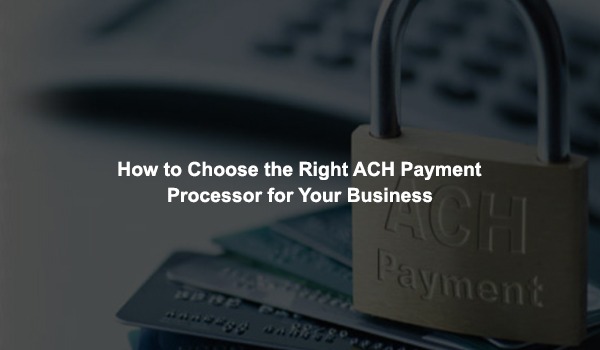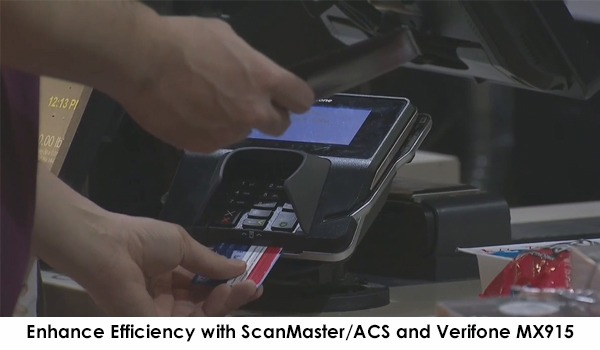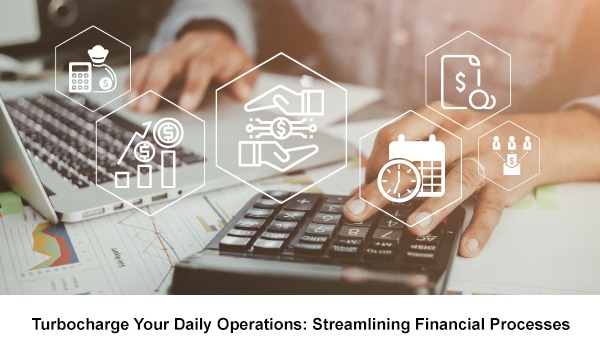
Introduction: The Need for Streamlining Financial Processes
In today's fast-paced business environment, efficiency is paramount. For merchants, optimizing financial processes is crucial for staying competitive and maximizing profitability. In this guide, we delve into how merchant services can revolutionize daily operations by streamlining financial processes.
Understanding Merchant Services
Before delving into streamlining financial processes, it's essential to grasp the role of merchant services. Merchant services refer to a variety of financial solutions designed to assist businesses in accepting and managing payments efficiently.This includes credit and debit card transactions, electronic payment processing, and related services such as fraud prevention and payment gateway integration.
Payment Processing Optimization
Efficient payment processing is the cornerstone of streamlined financial operations. Merchants must leverage advanced payment processing solutions to expedite transactions and enhance customer experience. This involves:
Integration of Payment Gateways
Integration of payment gateways is crucial for ensuring smooth and secure transaction processing across various channels. Here's a more detailed breakdown of key considerations:
- Security Features: Look for payment gateways that offer robust encryption protocols to safeguard sensitive customer data. Features such as tokenization and end-to-end encryption enhance security and reduce the risk of data breaches.
- Real-Time Processing: Opt for gateways that support real-time transaction processing to minimize delays and provide instant confirmation to customers. Real-time processing enhances the overall shopping experience by reducing waiting times and ensuring prompt order fulfillment.
- Compatibility and Flexibility: Choose payment gateways that are compatible with a wide range of payment methods, including credit cards, debit cards, digital wallets, and alternative payment solutions. Flexibility in payment options caters to diverse customer preferences and increases conversion rates.
- Seamless Integration: Ensure seamless integration of payment gateways with your existing e-commerce platform, point-of-sale (POS) system, or mobile app. Easy integration streamlines implementation and minimizes technical complexities, enabling faster time-to-market for new payment solutions.
Automated Billing and Invoicing
Automating billing and invoicing processes offers numerous benefits, from reducing administrative overhead to improving cash flow management. Here's a detailed look at the advantages and key features:
- Recurring Billing: Implement automated recurring billing functionality to streamline subscription-based services or recurring purchases. Automated billing schedules eliminate the need for manual invoicing and payment collection, improving efficiency and reducing errors.
- Invoice Generation: Utilize software solutions that generate invoices automatically based on predefined templates and transaction data. Customizable invoice templates enable branding consistency and facilitate easy customization to meet specific customer requirements.
- Payment Reminders: Set up automated payment reminders to notify customers about upcoming invoice due dates and encourage timely payments. Reminders can be sent via email, SMS, or mobile notifications, ensuring prompt payment submission and reducing the risk of late payments.
- Integration with Accounting Systems: Integrate automated billing and invoicing software with accounting systems to synchronize financial data seamlessly. Automatic data transfer between billing and accounting platforms eliminates manual data entry tasks and ensures accuracy in financial reporting and reconciliation.
Omnichannel Payment Solutions
In today's interconnected retail landscape, offering omnichannel payment solutions is essential for meeting customer expectations and maximizing sales opportunities. Here's a closer look at the key components of omnichannel payment strategies:
- Unified Payment Experience: Provide customers with a seamless payment experience across all channels, including brick-and-mortar stores, e-commerce websites, mobile apps, and social media platforms. Consistent branding and payment processes enhance customer satisfaction and loyalty.
- Cross-Channel Integration: Integrate payment systems across different channels to enable features such as click-and-collect, buy online, pick up in-store (BOPIS), and ship from store. Cross-channel integration allows customers to choose their preferred purchasing method while providing merchants with greater flexibility in order fulfillment.
- Inventory Synchronization: Sync inventory data in real-time across all channels to prevent overselling and stockouts. Integrated inventory management systems ensure product availability and accurate order fulfillment regardless of the sales channel used by customers.
- Personalized Payment Options: Offer personalized payment options based on customer preferences, purchase history, and loyalty status. Tailored payment solutions, such as installment plans or loyalty program discounts, enhance the shopping experience and increase customer satisfaction and loyalty.
By focusing on these aspects of payment processing optimization, merchants can enhance operational efficiency, improve customer satisfaction, and drive revenue growth in today's competitive marketplace.
Enhanced Security Measures
Securing financial transactions is of utmost importance in today's digital era. Merchants must adopt robust security measures to safeguard sensitive customer data and mitigate fraud risks. Key strategies include:
PCI Compliance
PCI Compliance involves following the Payment Card Industry Data Security Standard (PCI DSS), a set of security protocols aimed at guaranteeing that businesses handling credit card data uphold a secure environment, whether accepting, handling, storing, or transmitting such information. Here's a detailed look at PCI compliance:
- Understanding PCI DSS: Familiarize yourself with the requirements outlined in the PCI DSS framework, which includes measures such as securing network infrastructure, encrypting cardholder data, maintaining vulnerability management programs, and implementing access control measures.
- Implementing Security Measures: Deploy PCI-compliant payment processing solutions that adhere to the standards set forth by the PCI Security Standards Council. This may include using secure payment gateways, encrypting card data during transmission, and storing sensitive information in encrypted databases.
- Regular Security Assessments: Conduct regular security assessments and audits to identify vulnerabilities and ensure ongoing compliance with PCI DSS requirements. Engage qualified security assessors (QSAs) to perform detailed assessments and provide recommendations for enhancing security posture.
- Data Protection Policies: Establish robust data protection policies and procedures to govern the handling of cardholder data within your organization. This includes restricting access to sensitive information, implementing strong authentication measures, and enforcing secure coding practices.
Tokenization
Tokenization is a security technique that replaces sensitive payment data with unique tokens, rendering the original data meaningless to unauthorized users. Here's how tokenization enhances security:
- Tokenization Process: Implement tokenization technology to replace primary account numbers (PANs) with randomly generated tokens. These tokens are meaningless to hackers and cannot be used to conduct fraudulent transactions, even if intercepted.
- Multi-Touchpoint Security: Secure payment information across multiple touchpoints, including online transactions, point-of-sale systems, and mobile payment apps. Tokenization ensures that sensitive data remains protected throughout the entire transaction lifecycle, reducing the risk of data theft.
- Compliance Requirements: Ensure that tokenization solutions comply with industry regulations and standards, such as PCI DSS. Verify that tokenization processes meet the security requirements outlined by regulatory bodies to maintain compliance and protect customer data.
- Customer Trust and Loyalty: Tokenization enhances customer trust and loyalty by demonstrating a commitment to data security and privacy. Customers feel more confident knowing that their payment information is protected by advanced security measures, leading to increased satisfaction and repeat business.
Fraud Detection and Prevention
Fraud detection and prevention are critical components of a comprehensive security strategy. Here's how merchants can effectively detect and prevent fraudulent activities:
- Advanced Fraud Detection Tools: Deploy sophisticated fraud detection tools and algorithms that analyze transaction data in real-time to identify suspicious patterns or anomalies. Machine learning algorithms can detect emerging fraud trends and adapt to evolving threats more effectively than traditional rule-based systems.
- Real-Time Monitoring: Implement real-time monitoring systems that track transaction activities and flag potentially fraudulent transactions for further investigation. Real-time alerts enable merchants to take immediate action to prevent fraudulent activities and minimize financial losses.
- Anomaly Detection: Utilize anomaly detection techniques to identify deviations from normal transaction behavior. By establishing baseline transaction patterns, merchants can detect unusual activities, such as large transactions from unusual locations or atypical purchasing patterns, which may indicate fraudulent behavior.
- Collaborative Intelligence: Participate in collaborative intelligence networks or industry partnerships that share information about known fraudsters or fraudulent activities. By leveraging collective intelligence, merchants can proactively identify and prevent fraudulent transactions before they occur.
By implementing these enhanced security measures, merchants can effectively safeguard sensitive customer data, mitigate fraud risks, and maintain trust and confidence in their payment systems. Investing in robust security technologies and adopting best practices for PCI compliance, tokenization, and fraud detection enables merchants to protect their businesses and customers from evolving cybersecurity threats in the digital age.
Streamlined Reconciliation Processes
Efficient reconciliation processes are vital for accurately tracking financial transactions and maintaining financial integrity. Merchants can streamline reconciliation through:
Automated Reconciliation Software
Invest in automated reconciliation software that consolidates transaction data from multiple sources, including payment processors, banks, and accounting systems. Automated matching algorithms reconcile transactions swiftly, reducing manual effort and reconciliation errors.
Daily Settlements and Reporting
Opt for merchant services providers that offer daily settlements and comprehensive reporting capabilities. Daily settlements expedite cash flow and provide merchants with real-time visibility into transaction volumes, fees, and chargebacks, enabling proactive decision-making.
Integration with Accounting Software
Integrate merchant services platforms with accounting software systems to streamline reconciliation and financial reporting processes. Seamless data synchronization between payment processing and accounting systems enhances accuracy and efficiency, enabling timely financial analysis and decision-making.
Conclusion
In conclusion, streamlining financial processes through merchant services is indispensable for modern businesses seeking to optimize operations and drive growth. By leveraging advanced payment processing solutions, enhancing security measures, and streamlining reconciliation processes, merchants can turbocharge their daily operations, improve efficiency, and achieve sustainable success in today's competitive landscape. Embrace the power of merchant services to revolutionize your financial operations and propel your business forward.


